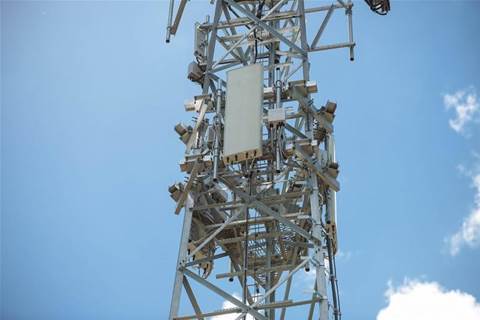The Australian Competition and Consumer Commission (ACCC) has refused to authorise Telstra and TPG Telecom’s proposed regional Australia network-sharing deal.
Signed in February 2022 the 10-year deal would allow TPG to acquire mobile network services from Telstra.
In doing so, TPG would gain access to 3,700 mobile network assets, and increasing its coverage from 96 per cent to 98.8 per cent of the Australian population.
In return, TPG would decommission 725 mobile sites it operates within Telstra's coverage in regional and urban fringe areas.
TPG would also transfer up to 169 of its mobile sites in regional areas to Telstra.
However, ACCC Commissioner Liza Carver said that the consumer watchdog believed that the “proposed arrangements will likely lead to less competition in the longer term and leave Australian mobile users worse off over time, in terms of price and regional coverage.”
“Competition between separate mobile networks drives companies to improve coverage for mobile users and to offer new technologies to more areas,” she continued.
Carver highlighted the importance for mobile network operators to compete on price, package inclusions, coverage, speed and quality dimensions as it motivates improvement of network infrastructure and consumer offerings.
The ACCC said that the proposed arrangements would lead to some short-term benefits from the improvement in TPG’s network coverage.
Cost savings and efficiencies for TPG and Telstra would also be gained.
“However, the enduring and more substantial impact of the proposed arrangements would be to lessen infrastructure-based competition which would make consumers, including those in regional areas, worse off over time,” Carver said.
“We have looked beyond the potential short-term effects to consider the long-term impact from the reduced incentive to innovate and improve networks.”
Telstra claimed that the increased spectrum it would obtain from TPG would enable it to reduce congestion in regional areas.
This argument did not convince the ACCC which said there were alternative ways to alleviate the congestion, without impacting competition.
The ACCC believes that the network-sharing deal would allow Telstra to “raise barriers to entry and expansion and reduce the incentives and ability of rivals to compete.”
Carver said, “After careful consideration of all the information available to us, including internal confidential information from the carriers, we consider that there is a real risk that TPG and Optus will invest less in critical infrastructure than they would if the proposed arrangements do not proceed.”
The ACCC engaged in public consultation regarding the deal, reviewing internal documents, over 170 submissions, and 40 witness statements and expert reports, which held strongly competing views.
During the ACCC’s consideration of the application, Telstra and TPG offered court-enforceable undertakings aiming to address the ACCC’s preliminary concerns.
The undertakings proposed that the ACCC could reassess the competitive effects of the proposed arrangements within eight years, and that TPG would not terminate leases or licences for 300 mobile sites in the relevant regional area.
“After careful consideration, we determined that these undertakings did not change whether the ACCC was satisfied of the relevant competition or public benefit tests against which the ACCC must assess a proposed merger authorisation,” Ms Carver said.
“The proposed arrangements would have an immediate impact on infrastructure competition in Australia and that impact would endure. Even if the arrangements were terminated after eight years, it would be too late to unwind the negative competitive impact.”
Telstra and TPG Telecom to appeal
Telstra and TPG have both responded stating they would appeal the ACCC’s decision.
Both telcos released statements highlighting their disappointment with the ACCC’s decision not to authorise the proposed TPG-Telstra regional network sharing arrangement.
Telstra chief executive officer Vicki Brady said: “this decision is a massive missed opportunity for the people, businesses and communities of regional Australia.”
Brady said the agreement would have delivered “better use of the government’s spectrum assets by unlocking unused spectrum that TPG holds in regional Australia but isn’t using.”
TPG meanwhile said it is preparing an application to the Australian Competition Tribunal for a review of the decision.
“We are disappointed the ACCC has chosen to ignore the overwhelming evidence submitted from leading economists, competition experts and regional communities outlining the benefits of the proposed arrangement to competition and consumer choice," TPG chief executive Iñaki Berroeta said,
“If it had been authorised, the arrangement would have freed regional Australia from its current mobile duopoly, and the increased competition from TPG would have placed downward pressure on mobile pricing.”
Optus also shared a statement, welcoming the ACCC’s decision to oppose the network sharing agreement.
“By knocking back this deal, the ACCC has helped ensure that our regional communities will continue to benefit from competition,” Optus chief exectuve Kelly Bayer Rosmarin said.
“From the outset we argued that this deal, which enabled TPG to quietly exit regional Australia, would entrench Telstra’s dominance, especially in the regions,” Optus vice president of regulatory and public affairs Andrew Sheridan said,







.png&h=142&w=230&c=1&s=1)





.jpg&w=100&c=1&s=0)








_(1).jpg&q=95&h=298&w=480&c=1&s=1)


